PhraNarai Vishnu Gold
PhraNarai(Narayana/Vishnu) statue, quality gold art work. Bless/chanted placing monastry's altar ceremony by Luangpor Teang Puripunyo, abbot of WatNongphong temple, guru monk of Thailand. PhraNarai is one of the three greatest Gods people pray/worship for thousands of years. Bring successful into life fortune, strong protection. Narai is a god with power to fortune.
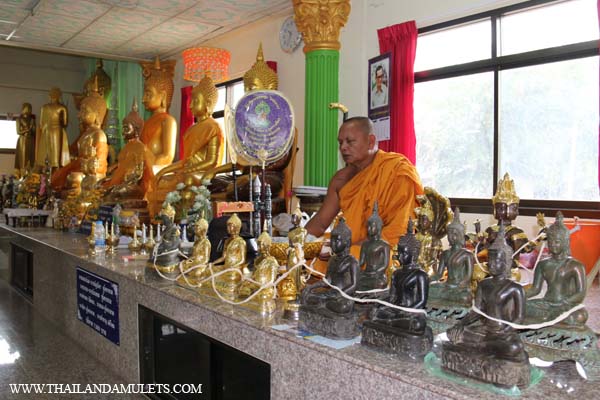
Phra Vissanu (Narayana)
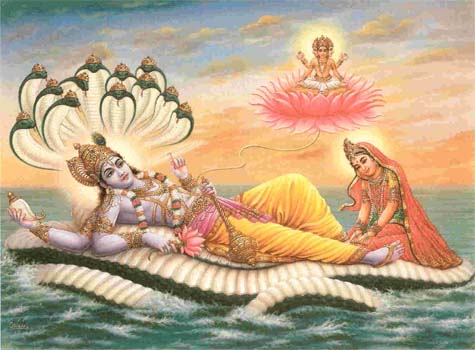
Vishnu also known as Narayana, is the Supreme Being or Ultimate Reality for Vaishnavas and a manifestation of Brahman in the Advaita or Smarta traditions of Hinduism.
The Vishnu Sahasranama describes Vishnu as the All-Pervading essence of all beings, the master of and beyond the past, present and future, the creator and destroyer of all existences, one who supports, sustains and governs the Universe and originates and develops all elements within.
In the Puranas, Vishnu is described as being the color of clouds (dark-blue), four-armed, holding a lotus, mace, conch and chakra (wheel). Vishnu is also described in the Bhagavad Gita as having a 'Universal Form' (Vishvarupa) which is beyond the ordinary limits of human sense perception.
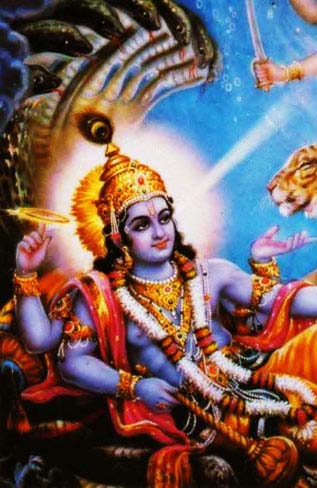
It is also within the Puranas that the information regarding Vishnu's avatars is given. Nine of these avatars, or 'incarnations' are described as having occurred in the past, with one still to happen at the end of Kali Yuga. The Bhagavad Gita mentions their purpose as being to rejuvenate Dharma and vanquish negative forces. In virtually all the Sanatana Dharma traditions, Vishnu is worshipped, either directly or through avatars such as Rama, Krishna, Varaha and Narasimha.
In the Trimurti, Vishnu is responsible for the maintenance or 'preservation' of the Universe, with the other roles of creation and destruction being under the care of Brahma and Shiva, respectively.
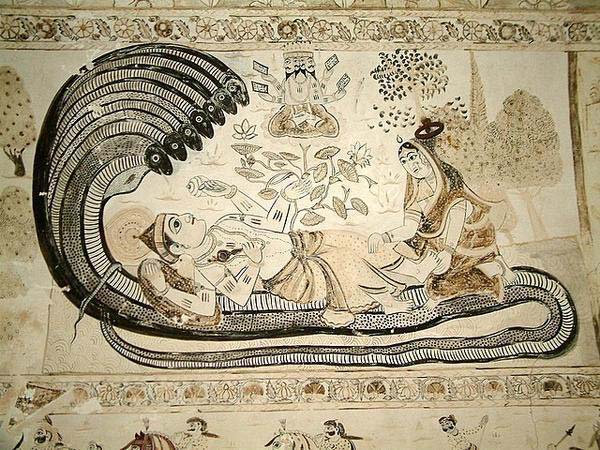
by Alan G. Hefner
Vishnu is regarded as a major god in Hinduism and Indian mythology. He is thought as the preserver of the universe while two other major Hindu gods Brahma and Shiva, are regarded respectively, as the creator and destroyer of the universe.
The original worship of Vishnu, by the Aryan conquerors of India or the original Dravidian inhabitants is not definitely known. In the ancient Vedas, the body of literature known as the Veda, and sacred literature of the Aryan conquerors, Vishnu is ranked among the lesser gods and is usually associated with the major Vedic god Indra who in the epics and Puranas fights against dragons and demonic forces. These latter writings emerge during the later development of Hinduism.
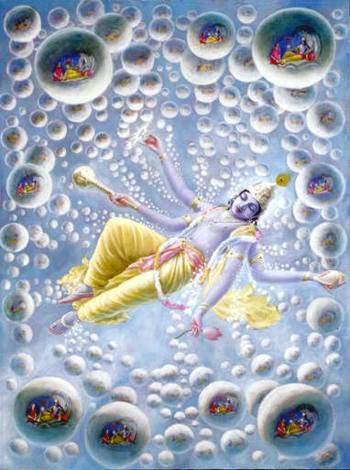
It is throughout this literature and especially through incarnations that Vishnu is raised to higher rankings within the Hindu pantheon. He becomes the prominent second god of the Trimurti, the Hindu Triad, while Brahma is first and Shiva is third.
In some Puranic literature Vishnu is said to be eternal, an all-pervading spirit, and associated with the primeval waters that are believed to have been omnipresent before the creation of the universe.
The concept of Vishnu being the preserver of the world came relatively late in Hinduism. Presumedly it sprang from two other beliefs: that men attain salvation by faithfully following predetermined paths of duty, and that powers of good and evil (gods and demons) are in contention for domination over the world. When these powers are upset Vishnu, it is further believed, descends to earth, or his avatar, to equalized the powers. Further it is thought that ten such incarnations or reincarnations of Vishnu will occur. Nine descents are said to have already occurred, the tenth is yet to come. Rama and Krishna were the seventh and eighth.
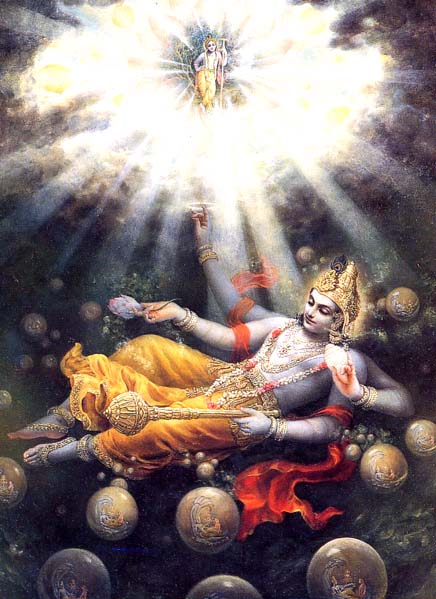
Another interesting speculation concerning Vishnu's role as preserver among many modern scholars is that it is characteristic of the practitioners of Hinduism to raise local legendary heroes to gods in the Hindu pantheon.
Vishnu is portrayed as blue or black shinned and has four arms. He has a thousand names and their repetition is an act of devotion.
The best of Thailand Buddha Statues/Amulets at
www.thailandamulets.com / www.thailandamulet.com









